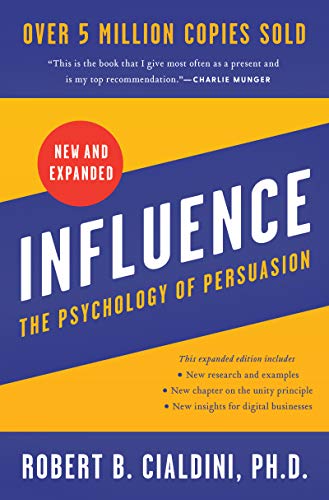
Influence, New and Expanded: The Psychology of Persuasion

Robert B. Cialdini • Influence, New and Expanded: The Psychology of Persuasion
Robert B. Cialdini • Influence, New and Expanded: The Psychology of Persuasion
Robert B. Cialdini • Influence, New and Expanded: The Psychology of Persuasion
Make no mistake, human societies derive a truly significant competitive advantage from the reciprocity rule and, consequently, they make sure their members are trained to comply with it. Each of us has been taught to live up to the rule from childhood, and each of us knows the social sanctions and derision applied to anyone who violates it. Because
... See moreRobert B. Cialdini • Influence, New and Expanded: The Psychology of Persuasion
Robert B. Cialdini • Influence, New and Expanded: The Psychology of Persuasion
Robert B. Cialdini • Influence, New and Expanded: The Psychology of Persuasion
Robert B. Cialdini • Influence, New and Expanded: The Psychology of Persuasion
Consider, for example, the shortcut rule that goes, “If an expert said so, it must be true.” As we will see in chapter 5, there is an unsettling tendency in our society to accept unthinkingly the statements and directions of individuals who appear to be authorities on a topic. That is, rather than thinking about an expert’s arguments and being conv
... See more